Media coverage of Beijing Winter Olympics shows parallel worlds
It seems that the Chinese and foreign media have very different approaches to covering the Beijing Winter Olympics - Chinese journalists want to portray the favourable side of the Games while foreign journalists tend to take a more critical stand in focusing on problems. Zaobao correspondent Yang Danxu examines this phenomenon.
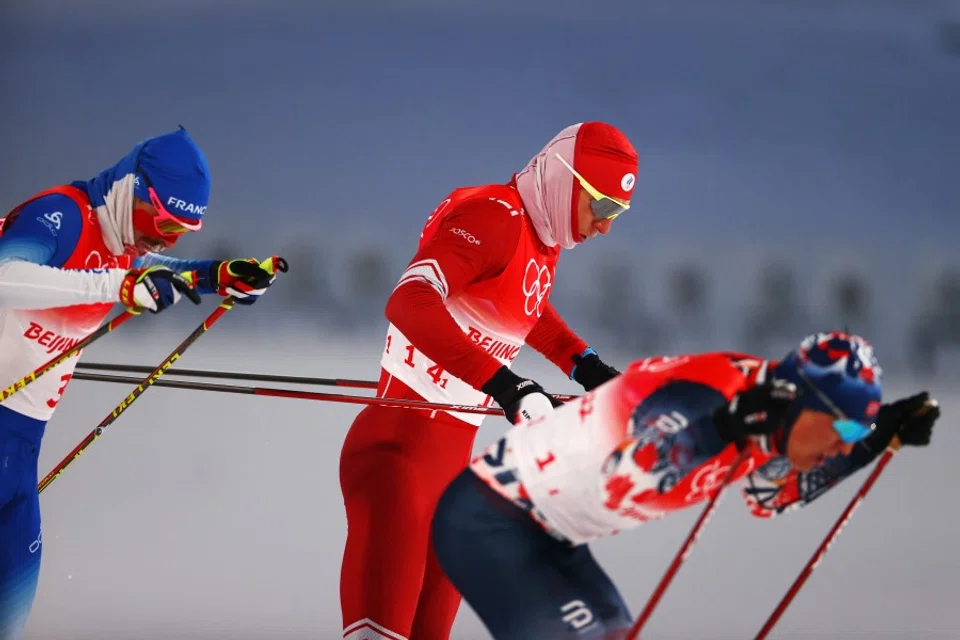
New York Times journalist Andrew Keh noticed something interesting while covering the Winter Olympics: within the "closed-loop" Olympics, Chinese and foreign journalists seem to exist in two parallel worlds.
In the article "At Beijing Press Conferences, the Questions Tell Their Own Story", which was also published in Chinese as "丑闻vs烤鸭:冬奥会中外记者报道方式的'平行宇宙'" (translation of the Chinese title reads: Scandal vs Roast Duck: The 'Parallel Universes' in the Way Chinese and Foreign Journalists Report the Winter Olympics), Keh observed that during a press conference on 12 February, 11 out of 12 questions raised in English were about Russian figure skater Kamila Valieva's doping scandal.
The 15-year-old's positive drug test on 25 December 2021 was revealed after the Russian Olympic team won gold in the team figure skating competition, and the scandal became one of the hottest topics for foreign journalists.
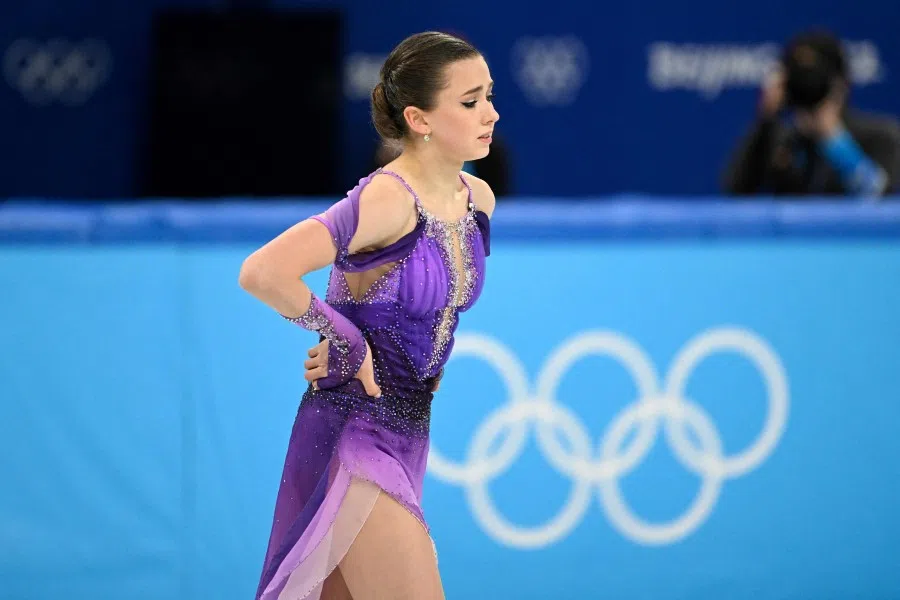
During the press conference, Keh also noticed that the seven questions raised in Chinese were about other topics, such as the athletes' favourite food, how many roast ducks were consumed each day in the Beijing Olympic Village, and whether the athletes' many record-breaking performances were related to the good services at the Beijing Olympic Village.
Keh concluded that the short one-hour session perfectly summed up the two parallel styles of reporting within the Olympics bubble - journalists from outside China posed uncomfortable questions to the International Olympics Committee about what went wrong, while the Chinese journalists focused on everything that went well.
While I was not physically at the press conference, the scene he described is not difficult to imagine. From the preparations to the opening of the Beijing Winter Olympics, these parallel worlds are apparent throughout Chinese and foreign media reports.
The Chinese media worked hard to publicise the "green-ness" and lovely simplicity of the Games, trumpeting how acclaimed Chinese film director Zhang Yimou's opening ceremony showed "Chinese romanticism"; meanwhile the international media focused on human rights issues in Xinjiang and the diplomatic boycotts, as well as the environmental issues brought about by artificial snow.
In contrast, the international media did not seem to love Gu as much.
Reports by Chinese and foreign media on skiing phenomenon Eileen Gu, who is representing China, also exist in two parallel worlds.
Gu's athleticism, model-worthy looks, eloquence and intelligence have made her a media darling in China. The media spared no hesitation in their praise for the naturalised athlete, whose every move in the Olympics arena has been scrutinised; even images of her snacking on jiucai hezi - pan-fried dumplings stuffed with chives and vermicelli - while waiting for her scores have been widely reported.
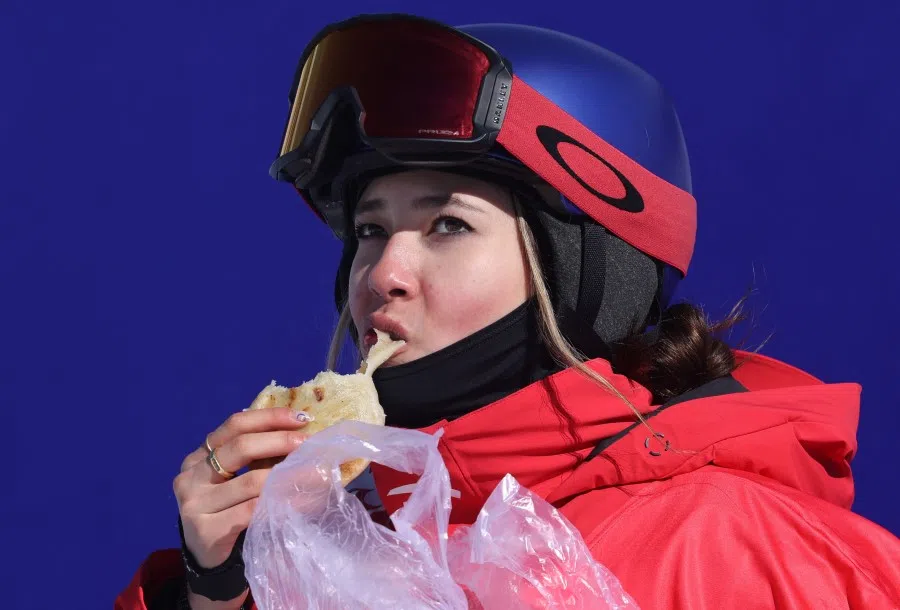
The personal life of Gu has not been spared either. Trivia about how this straight-A student sleeps ten hours a day and that she used to take Math Olympiad lessons at the Huangzhuang area in Beijing's Haidian district, a hub for tutoring institutions, are all fodder for the Chinese media. Even the fact that Gu's grandmother worked for China's Ministry of Transport made it to the top searches on social media.
In contrast, the international media did not seem to love Gu as much. After the "Eileen Gu fever" took over China's social media, the controversy surrounding her has been focused on whether she retained her American citizenship now that she is a naturalised China athlete, and whether she was being ungrateful to the US in choosing to compete for China over the US.
The international media were also quick to catch on to another sentiment that netizens had towards this gifted skier. Below one of Gu's Instagram posts, a netizen asked if Gu has received "special treatment" since she was able to use Instagram while "millions of Chinese people from mainland cannot".
Gu replied, "Anyone can download a VPN its [sic] literally free on the App Store." While her reply was later deleted, screenshots of the discussion went viral on Chinese social media and attracted international media attention over the past few days.
Gu was also accused of gaining benefits from both China and the US - enjoying the US's freedom and resources on the one hand, while receiving commercial benefits from China on the other - and was called a privileged and sophisticated egoist.
China also wants to compete confidently and courageously with the top foreign players in winter sports, which is not its forte, and show China's ability to interact with the world on an equal level.
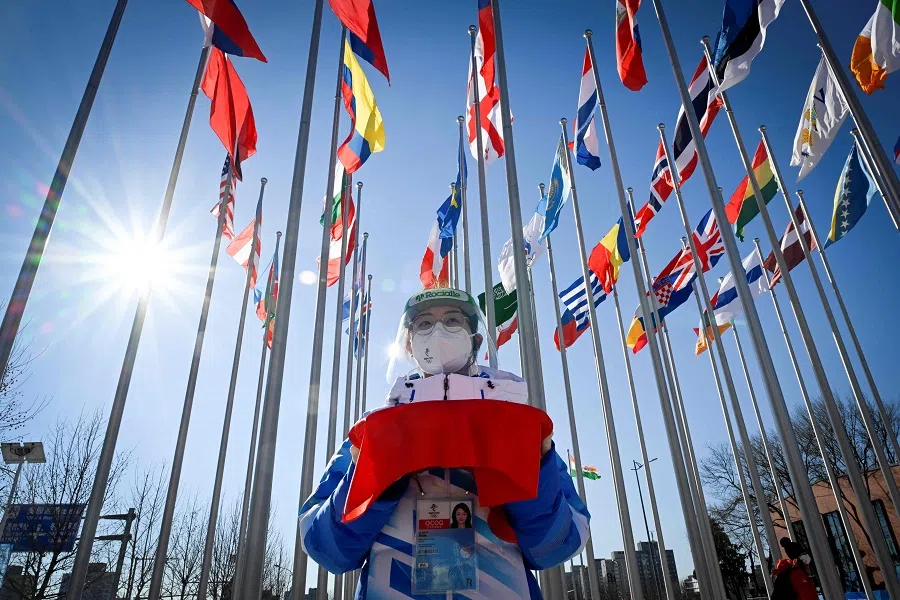
At first glance, the different portrayals of the Winter Olympics by the Chinese and international media were shocking - are they even talking about the same Winter Olympics?
In fact, there have always been huge differences between the Chinese and international media, especially mainstream Western media, in their observations, perceptions and judgements of China and China-related affairs. These differences were further highlighted at the Winter Olympics, which was organised amid intense tension between China and the West.
The Chinese and foreign media each have their own objectives and limitations. On the one hand, the Chinese media hope to present a successful Winter Olympics to the audience and showcase China's warmth and hospitality as the host city. At the same time, through its younger generation of athletes, China also wants to compete confidently and courageously with the top foreign players in winter sports, which is not its forte, and show China's ability to interact with the world on an equal level.
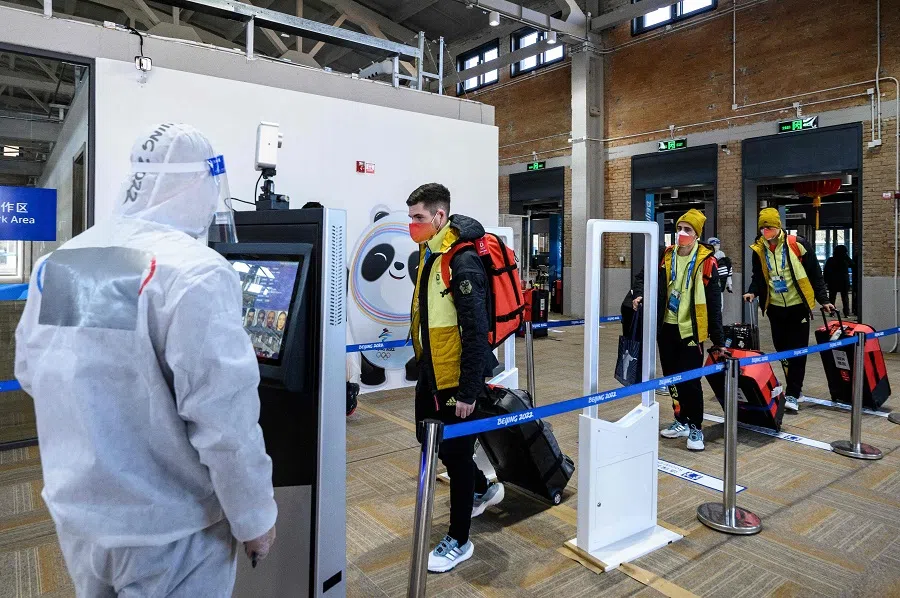
In the current media environment, Chinese media are also tasked with the mission of transmitting positive energy, and must tell the Chinese story well through the Winter Olympics.
The two sides are indeed a portrayal of truth as seen with their own eyes - they are but one part of a big and complex China.
On the other hand, the international media, especially Western media, are more accustomed to asking critical questions, exposing the dark sides of the story, and examining issues with a critical and inspective mindset. Facing a country that has a completely different political system and ideology, they also tend to subject China to critical scrutiny.
Whether it is the popular Beijing roast duck in the Winter Olympic Village or the various controversies surrounding the Games, they are part and parcel of the Beijing Winter Olympics. The Chinese and Western media also often seem to showcase two parallel worlds in China, similar to how the Winter Olympics have been reported on. The two sides are indeed a portrayal of truth as seen with their own eyes - they are but one part of a big and complex China.
Related: China's love-hate relationship with naturalised athletes | Does China still need Olympic gold medals to prove its worth? | Will political bickering overshadow sports events at the Beijing Winter Olympics? | China has a zero-Covid policy. Can it pull off a spectacular Winter Olympics? | Beijing gears up for Winter Olympics amid Omicron threat





